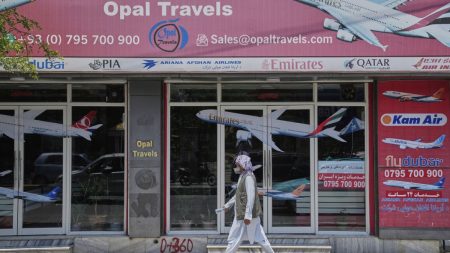The European Union faces a complex and evolving challenge in its response to the ongoing Syrian crisis, particularly regarding its asylum policies and engagement with the Syrian regime. Maria Luisa Fantappiè, a senior Middle East expert at the Italian Istituto Affari Internazionali, argues against premature actions like halting asylum processes for Syrians. She emphasizes the need for a sustained and nuanced approach, prioritizing the establishment of a viable political process in Syria while acknowledging the uncertain future for refugees and the country itself. The EU’s historical approach has been cautious, balancing sanctions against the Assad regime with substantial humanitarian aid. This balanced approach is now being tested by the emergence of new actors and internal pressures within the EU to adopt more restrictive asylum policies.
The EU’s response to the Syrian crisis has been characterized by a carefully calibrated approach since the onset of the conflict in 2011. The bloc has imposed targeted sanctions on members of the Assad regime, including asset freezes and travel bans, aimed at pressuring the regime to engage in meaningful political dialogue and address human rights abuses. Simultaneously, the EU has maintained its position as the largest provider of humanitarian aid to the Syrian people, recognizing the dire humanitarian situation caused by the conflict. This dual approach of sanctions and aid reflects the EU’s commitment to both accountability and humanitarian principles. However, the evolving political landscape within Syria, including the rise of new factions and alliances, presents a significant challenge to the EU’s established strategy.
The emergence of a new coalition, considered a terrorist group by the EU, adds another layer of complexity to the situation. This development has prompted calls for a reassessment of the EU’s Syria policy, with some member states advocating for more stringent measures, including the suspension of asylum claims and even the potential deportation of Syrian refugees. This shift in approach reflects growing internal pressures within the EU, particularly in countries like Austria, where concerns about security and integration have led to a hardening of stances on migration. Fantappiè, however, cautions against such hasty actions, arguing that they could undermine the prospects for a peaceful resolution and further destabilize the region. She emphasizes the need for a comprehensive and long-term strategy that addresses the root causes of the conflict and prioritizes the creation of conditions conducive to the safe and voluntary return of refugees.
A central aspect of the EU’s future strategy, according to Fantappiè, should be the prioritization of a viable political process in Syria. Given the ongoing conflict and the complex interplay of regional and international actors, achieving a lasting peace will require sustained diplomatic efforts and a commitment to inclusive dialogue. The EU should leverage its diplomatic influence and its position as a major humanitarian actor to facilitate negotiations and foster a political environment conducive to reconciliation and reconstruction. This process must involve all relevant stakeholders, including representatives of the Syrian government, opposition groups, and civil society organizations, to ensure a truly representative and sustainable outcome.
The uncertainty surrounding the situation in Syria and the future prospects for refugees underscores the need for a cautious and considered approach. The ongoing conflict, coupled with the presence of extremist groups and the complex political landscape, creates significant challenges for any repatriation efforts. It is essential to ensure that any return of refugees is voluntary, safe, and dignified, in accordance with international humanitarian law. Prematurely halting asylum processes or contemplating deportations could jeopardize the safety and well-being of vulnerable individuals and undermine the EU’s commitment to human rights principles.
The EU’s internal discussions on its Syria policy will continue to shape its response to the evolving situation. The deliberations within the European Commission and among EU diplomats, as highlighted by the Euronews report, are crucial for formulating a cohesive and effective strategy. It is imperative that these discussions prioritize a balanced approach that combines humanitarian assistance with efforts to promote a political solution, while upholding the rights and dignity of Syrian refugees. The challenge for the EU is to maintain its commitment to humanitarian principles while addressing the legitimate security concerns of its member states and working towards a long-term solution to the Syrian crisis.










